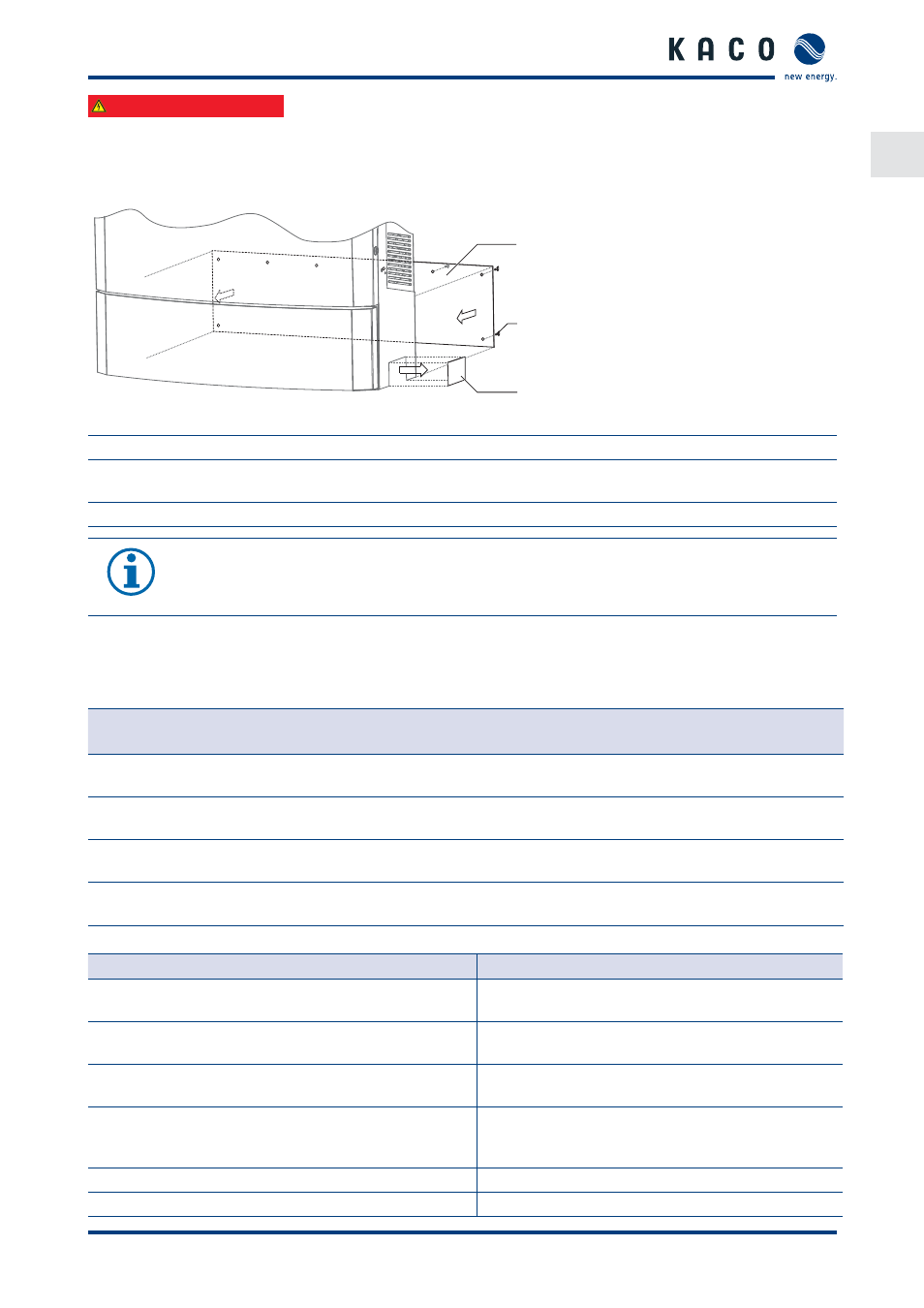2 lay the electrical lines, 3 making the electrical connection – KACO Powador 30.0 - 60.0 TL3 User Manual
Page 19

Installing the inverter
Operating Instructions for Powador 30.0-72.0 TL3_EN
Page 19
EN
Authorised electrician
7.2
Lay the electrical lines
The pre-punched perforations on the side-mounted housing base enable all electrical lines to be inserted properly
in the interior of the inverter.
3
1
2
Figure 9: Perforation on the housing base /rear plinth panel
Key
1
Plinth panel (optional)
3
Pre-punched perforation
(for cable duct [72 x 110 mm])
2
Fixing screw (8x) (optional)
NOTE
If the device is going to be installed outdoors, we recommend that an additional plinth panel is fi tted
in the socket area at the back end of the housing. (accessory item from KACO new energy)
7.3
Making the electrical connection
Make the connection to the PV generator as well as the grid connection via the PCB terminals in the connection area
of the inverter. Note the following cable cross-sections:
AC connection (M/
XL/F)
DC connection (M)
DC connection (XL/F)
Max. conductor cross-section
without wire sleeves
50 mm²
35 mm²
10 mm²
Max. conductor cross-section
with wire sleeves
30.0-48.0 TL3: 50 mm²
60.0-72.0 TL3: 35 mm²
35 mm²
10 mm²
Length of insulation to be
stripped off
depedent on the utilised terminal type
Tightening torque
30.0-48.0 TL3: 4-4,5 Nm
60.0-72.0 TL3: 2.5-4 Nm
-
2.5 Nm
The unit variants M and XL also diff er in the following ways:
Version M
Version XL
Version XL SPD 1+2
String fuses
To be provided externally
on-site
internal, fuse size depends on connection
Overvoltage conductors
(surge protection device)
To be provided externally
on-site
Installed internally, Type II,
1 per MPP tracker
Installed internally, Type
I+II, 1 per MPP tracker
Combiner box
To be provided externally
on-site
Installed internally
Parallel connection of the
DC inputs
Parallel connection not
possible, connection via
individual cables
Parallel connection not possible, connection via indi-
vidual cables
Overvoltage safety class
DC: III, AC: III
DC: II + III, AC: III
Overvoltage category
DC: II, AC: III
DC: II, AC: III
